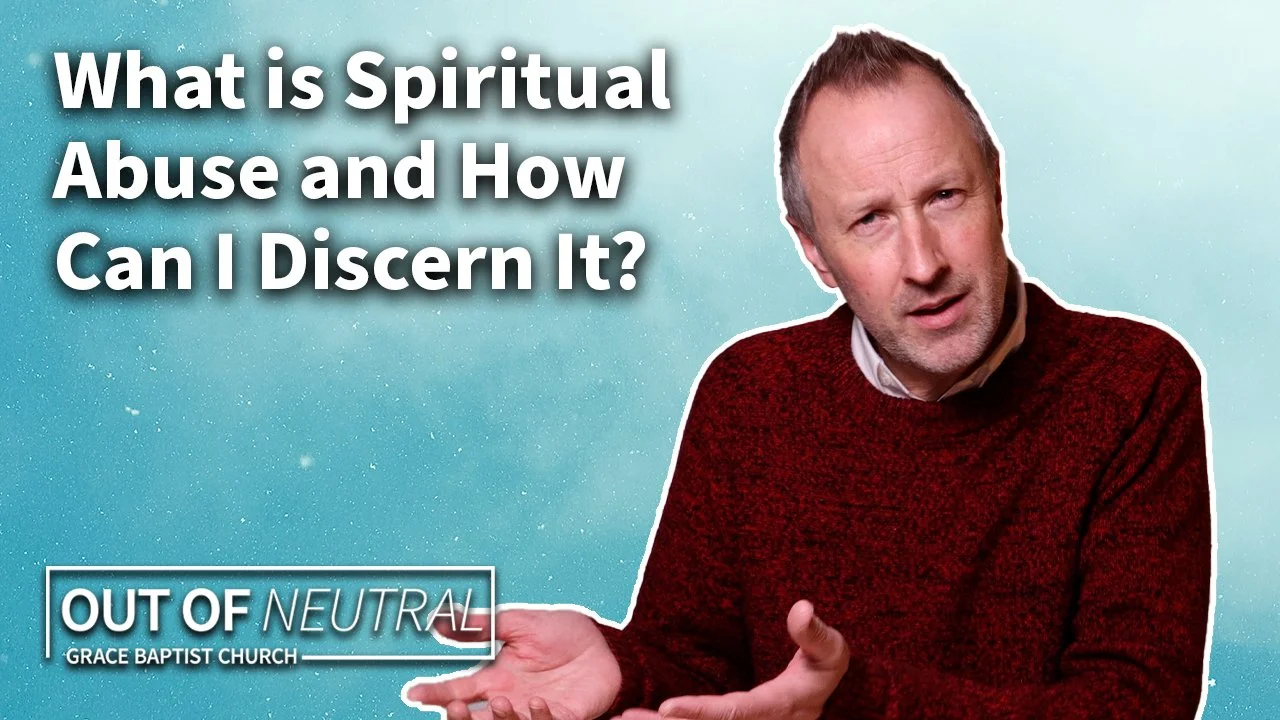Click on the image above for the video of this article or keep reading below for the text version.
In her book, “Is It Abuse?,” Darby Strickland tells the story of a woman she was counselling. When prompted, the woman had shared that her husband had recently prayed with her about her “inability to control herself.” He quoted Jesus’ words about the dangers of trying to serve two masters (Matthew 6:24) and finished by praying for “God to grant him the ability to tolerate what God himself barely can.” What had moved her husband to pray with such emotion and distress? That week, she had overspent on the groceries for their family of 9 by 6 dollars. Someone on the outside looking in would have the objectivity to call this spiritual abuse. When you’re the one who’s the target, it’s far more difficult to see so clearly.
Spiritual abuse can occur in a marriage, a parent-child relationship, and in the church and other religious settings. It’s powerful because it feeds on the guilt and shame that we can all experience and uses the Scriptures to assert control rather than to minister. If you’re being oppressed with the Bible, you need more than just someone else’s words – you need the clarity of the Word of God itself to discern what’s happening. Here are some Scriptures to use and questions to ask to discern spiritual abuse.
1. Does the person’s public spirituality match their private behaviour?
The spiritual leaders Jesus rebuked most severely were characterized by hypocrisy (Matthew 23:13). They told others to do things that they themselves were unwilling to do. Jesus famously said, “they preach, but do not practice” (Matthew 23:3). They’re diligent to cultivate an image of someone who is righteous and spiritually earnest, but they do this as a means of control. They want the authority that a reputation of faithfulness gives. Jesus said, “you also outwardly appear righteous to others, but within you are full of hypocrisy and lawlessness” (Matthew 23:28). Where there is hypocrisy, it doesn’t mean that there is abuse, but abuse can’t exist without it. Consider how wide the gap is between the person’s public spirituality and private behaviour.
2. Do they add to your burdens or help release you from them?
Jesus came to set the captives free (Luke 4:18) and His ministry was marked by compassion and mercy. That didn’t mean that He avoided confronting sin, but His life was always redemptive. He “came not to be served but to serve” (Matthew 20:28). Christians are called to reflect the same grace: “Brothers, if anyone is caught in any transgression, you who are spiritual should restore him in a spirit of gentleness” (Galatians 6:1). Oppressors are addicted to control and so struggle to serve the people closest to them. Their sense of entitlement makes them think that others should be feeding their needs not the other way around. And so, they always make you feel like there’s more for you to do and they’re never satisfied. Jesus described the mindset like this: “They tie up heavy burdens, hard to bear, and lay them on people's shoulders, but they themselves are not willing to move them with their finger” (Matthew 23:4). The heavy burdens Jesus mentions may come through expectations, guilt, fear, or accusation, but the lack of grace and the unwillingness to serve are the key signs to watch out for.
3. Do they nitpick you while ignoring major blind spots of their own?
The spiritual leaders of Jesus’ day were nitpicks. Actually, Jesus calls them gnat-strainers. In one of His more memorable rebukes, He said, “You blind guides, straining out a gnat and swallowing a camel” (Matthew 23:24). The picture is of people who were focused on the wrong things. They were obsessed with minor areas of obedience in others while ignoring major areas of obedience in themselves. He confronted them saying, “you clean the outside of the cup and the plate, but inside they are full of greed and self-indulgence” (Matthew 23:25). If there’s someone who feels called to make a spiritual project out of your faults, make some assessments yourself. Do they seem to have major blind spots of their own? Are they open to being confronted about their own sin? Are they teachable? Do they submit to church authority?
We all need help to grow, and other people can play a vital role in helping us to see our own sin and deal with it. But someone who uses the Bible to oppress and manipulate you is using God not serving Him. Don’t be a willing victim to their abuse. And if you’re the one who finds yourself in a leadership role in a relationship, make sure that the graceless hypocrisy and nitpicking that Jesus confronts aren’t true of you.
In awe of Him,
Paul











